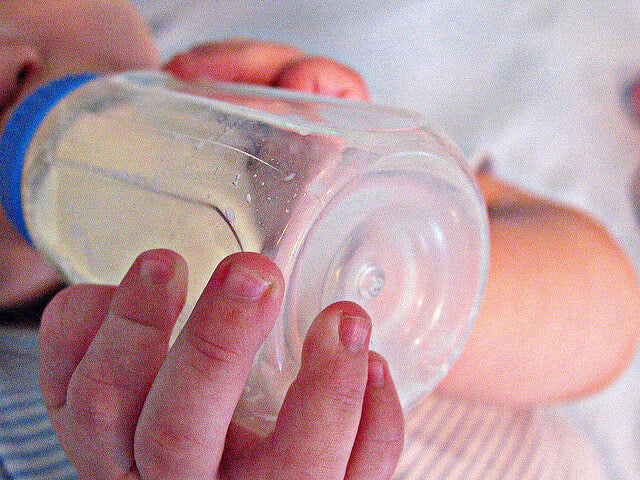In infancy, you are your mother’s breast milk. Well, at least if that’s what you’re nursing.
New research published in JAMA Pediatrics shows that children who nurse on their mother’s breast milk have the microbiome of their guts seeded during this important period.
Previous research has shown that children who breastfeed tend to have healthier microbiomes, which conveys a plethora of health benefits.

“Establishment of the infant microbiome has lifelong implications on health and immunity,” the researchers state in their abstract. “Gut microbiota of breastfed compared with non-breastfed individuals differ during infancy as well as into adulthood.”
The researchers, led by Dr. Grace M. Aldrovandi of the University of California Los Angeles, followed 107 healthy mother-infant pairs. The bacterial composition of their guts was identified with gene sequencing of 165 ribosomal RNA genes in breast milk.
The researchers also examined whether the bacteria found on the areola of the mother’s breast ended up in the guts of their children. Indeed, what was found inside the guts of children more closely matched the bacteria of the birth mother’s areola than of a random mother’s.
Related: Why Babies Naturally Have Racial Bias and How to Prevent It
The more breast milk the infants received, the more closely their gut’s microbiome resembled their mother’s. “Estimates suggest that during the first 30 days of life, infants who breastfeed to get 75 percent or more their daily milk intake received an average of nearly 28 percent of the bacteria from breast milk and about 10 percent from areolar skin, with the remaining 62 percent coming from sources the authors did not characterize,” according to a JAMA news release.
“Our study confirms a bacterial community in breast milk and tracks that community from mothers into the infant gut,” the researchers concluded. “Breast milk bacteria influence the establishment and development of the infant microbiome with continued impact after solid food introduction.”
The researchers said it is possible that bacteria from an infant’s stool could also be seeding the mother’s microbiome, too. “It’s likely that bacteria cycle between the mother and infant in a constant exchange,” they wrote. “However, we favor the idea that transfer of bacteria primarily occurs from mother to infant.”
Related: Ford’s New Crib Simulates Car Rides to Put Babies to Sleep
For children who are not breastfed, their gut microbiome can still be influenced by their mother’s gut as well as her vaginal bacteria and their overall environment.
“Perturbations in the microbiome are associated with susceptibility to autoimmune diseases, such as diabetes, inflammatory bowel disease, atopy, and other conditions,” the authors wrote.
They added that how a ‘normal’ infant microbiome gets established is poorly understood. “Colonization of the infant gut is a complex process dependent on multiple overlapping factors, including age, mode of delivery, type of feeding, and environmental exposures.”
A professional journalist nearly 30 years, David Heitz started his career at the Quad-City Times in Davenport, Iowa before moving to Los Angeles. He led the Glendale News-Press to best small daily newspaper in the state (CNPA) as managing editor and also worked as executive news editor of the Press-Telegram. He worked briefly as deputy news editor of the Detroit News before returning to the Quad-Cities, where he has worked as a freelance medical writer since 2012 for several national websites. He recently purchased his childhood home and says he truly is “living the dream.”


![How To: ‘Fix’ Crepey Skin [Watch]](https://cdn.vitalupdates.com/wp-content/uploads/2017/05/bhmdad.png)












